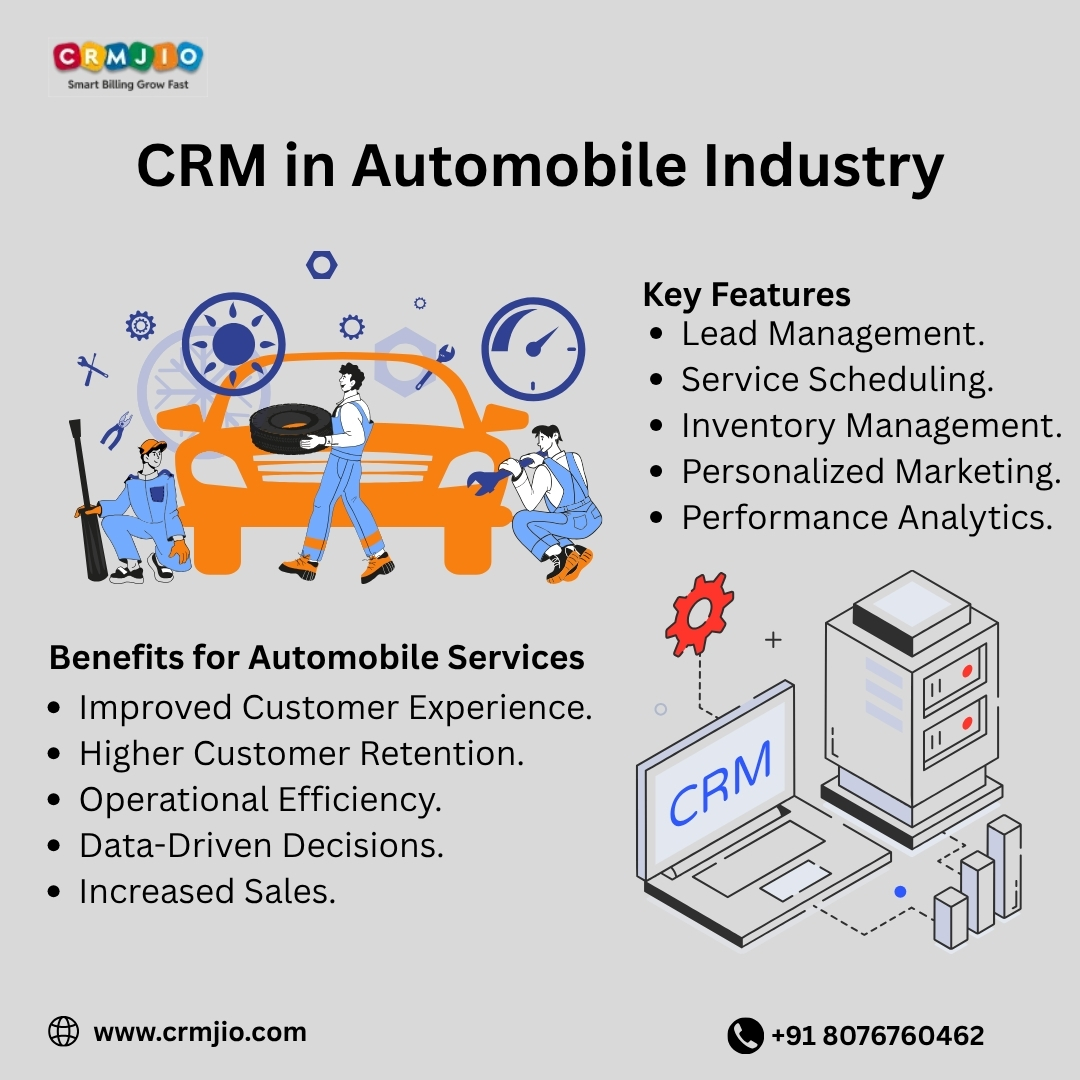CRM in Automobile Industry
How CRM in automobile industry increases sales for auto companies. Dealerships may increase productivity, automate processes, and organize customer data with the aid of automotive CRM software.
CRM in automobile industry is specialist software used in the automotive sector to handle sales, operations, and customer connections from the point of sale to after-sale support. Through the centralization of client data and interactions across several platforms, including chats, phone conversations, and in-person visits, dealerships may enhance customer engagement, boost sales, expedite procedures, and foster loyalty by providing individualized communication and service.
1. In the automotive industry, what is CRM?
In the automotive industry, CRM refers to tools and techniques used to track interactions across many channels, automate procedures, and manage customer data. It enables dealerships and service facilities to centrally store important data, including communication logs, car specifications, service histories, and client preferences.
By comprehending their demands, providing prompt services, and guaranteeing customer happiness, this aids automakers in establishing enduring interactions with their clients.
2. CRM's Principal Advantages for the Auto Industry
a) Lead Management Auto dealers can effectively handle leads from a variety of sources, including websites, social media, and walk-ins, with the use of a CRM system. Conversion rates are raised by making sure each lead is monitored and followed up with at the appropriate moment.
b) Tailored Client Experience
CRMs allow sales and service teams to provide individualized communication and recommendations by keeping track of comprehensive client data. Engagement and loyalty are increased, for instance, by sharing discounts depending on vehicle type or reminding people when their cars need maintenance.
c) Enhanced After-Sales Service
CRM in automobile industry software helps in scheduling maintenance, warranty tracking, and service reminders. A satisfied customer is more likely to return for servicing or refer others to your business.
d) Better Communication and Coordination
From sales representatives to service advisors, everyone can access real-time customer information. This ensures smooth coordination and quick responses, creating a seamless experience for customers.
e) Data-Driven Decisions
With CRM analytics, businesses can monitor sales trends, customer preferences, and performance reports. These insights help improve marketing campaigns and identify growth opportunities.
3. CRM Features for Automobile Businesses
- Customer Data Management: Store complete profiles, including contact details, purchase history, and service records.
- Automated Reminders: Notify customers about service due dates or upcoming promotions.
- Sales Pipeline Tracking: Track every lead’s progress from inquiry to final purchase.
- Integration with Marketing Tools: Run targeted campaigns via email, SMS, or WhatsApp.
- Reporting & Analytics: Generate real-time performance reports to make informed decisions.
4. Why Automobile Businesses Need CRM
The CRM in the automobile industry relies heavily on trust and long-term relationships. Without a CRM system, managing thousands of customers and service requests can become chaotic. A well-implemented CRM helps dealerships not only retain customers but also improve their lifetime value through consistent engagement and quality service.
Conclusion
In a fast-moving automotive market, staying connected with customers is the key to success. CRM in the automobile industry empowers businesses to deliver personalized experiences, manage operations efficiently, and boost customer loyalty. Whether it’s managing leads, tracking service history, or running marketing campaigns, CRM acts as the driving force behind customer satisfaction and business growth.
FAQs
1. What is the main purpose of CRM in the automobile industry?
CRM helps automobile businesses manage customer relationships, improve communication, and enhance overall service quality through automation and data tracking.
2. How does CRM improve car sales?
CRM software helps sales teams manage leads, track interactions, and follow up at the right time, resulting in higher conversions and better customer relationships.
3. Can CRM help in after-sales service management?
Yes, CRM systems send automated service reminders, manage warranty details, and store vehicle service history, ensuring smooth after-sales support.
4. Is CRM useful for small automobile dealers?
Absolutely. Small dealers can use CRM to organize customer data, improve follow-ups, and run marketing campaigns—helping them compete with larger dealerships.
5. Which CRM software is best for the automobile industry?
Popular options include CRMJIO, Salesforce Automotive Cloud, and Zoho CRM, which offer specialized tools for managing leads, service scheduling, and customer engagement.





Comments